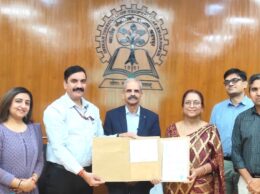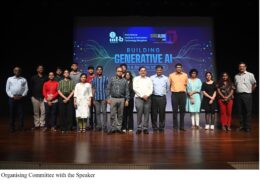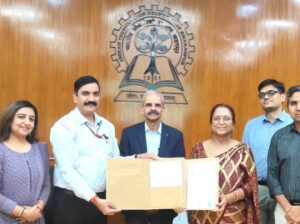New Delhi: A doctoral degree is one of highest level of academic degrees practiced by higher education system both in India and international system. This degree is popularly known as PhD. It is also called as Doctorate of Philosophy, derived from the Latin Doctor Philosophiae (for DPhil) or Philosophiae Doctor (for PhD).
With the changing times, different forms of PhD degrees are practiced in the academic system. Degree may be the same but the approach and selection process for awarding the degree is different. (Regular) PhD, integrated PhD, and Part Time PhD are widely used degrees in this category. Here, SkillOutlook presents the brief on these different categories of Doctoral Degree.
(Regular) PhD: This research degree is the most widely practiced by the higher education system. Universities , Institutions , Colleges, etc. follow PhD guidelines as per the framework provided by higher education regulators such as the University Grants Commission (UGC) and All India Council for Technical Education. Generally, starting from admission to submission of thesis of original research by candidates, the institutions follow the guidelines before awarding the degree. Some universities call this regular PhD . In Business School, PhD degree is known as Fellow Programme in Management (FPM).
For regular doctoral degree, master degree with a certain minimum percent of mark or equivalent degree is required for getting admission into this research degree. As per the (Minimum Standards and Procedure for Award of MPhil/PhD Degrees) Regulations, 2016, candidates seeking admission to the PhD programme shall have a master’s degree with at least 55% marks in aggregate or its equivalent grade ‘B’ in the UGC 7-point scale. Further, a relaxation of 5% of marks, from 55% to 50%, or an equivalent relaxation of grade, is relaxed for those belonging to SC/ST/OBC (non-creamy layer)/Differently-Abled candidates. PhD programme shall be for a minimum duration of three years, including course work and a maximum of six years since admission (i.e. enrolment). This Mphil/PhD Regulations 2016 is applicable for the UGC approved Universities, institutes and colleges.
Integrated PhD: Integrated PhD Programme is a research programme, which is widely used in Science and Engineering & Technology fields. At the end of the successful completion, Master of Science (MSc) or Master in Technology (MTech) and doctoral degree is awarded. Generally, the first two years course consists of MSc or MTech curriculum. Next three years focus on research work and core PhD work.
This type of doctoral degree is widely used by Institutes of National Importance such as Indian Institutes of Technology (IITs), National Institutes of Technology (NITs), Central Funder Technical Institutes (CFTIs), and Indian Institutes of Information Technology (IIITs). Sometimes, this is called Direct PhD where a meritorious BTech (BSc, B Engineering, etc.) candidate gets direct admission into the research work without Master Degree. After successful completion of PhD degree, the candidate is eligible for both master and doctoral degrees. Some Universities or Institutes call it dual degree PhD as the candidate gets two degrees such as Master and Doctoral after completion of the course.
Part Time PhD: This type of PhD degree is designed for working employee/executives/research scholars. The entire course is designed, which is suitable for the working professionals. However, the core terms and conditions prescribed by the UGC or AICTE are not compromised and remain intact in the Part Time PhD. The core intent of the Part Time PhD is flexible residential course and not the distance mode. The candidate is expected to make regular visits to campus while pursuing the course instead of staying whole period during the PhD study.
The Part Time PhD works in an almost similar manner. The process of qualifying examination, thesis proposal and thesis defence are the same as the full-time PhD program. The primary aim of this course is to encourage the employees/ working professionals to remain updated in research work and enhance their knowledge in their specialized field.
PhD Vs MPhil: MPhil degree is the one of the highest degrees after Master Degree, which is the prerequisite required for a Master of Philosophy degree make it the most advanced research degree before the Doctor of Philosophy. MPhil is widely used for Arts & Social Science and Humanity Group subjects. MPhil degree holders get some exemption while pursuing PhD course both in terms of admission and course & research work. As per the MPhil/PhD Regulations 2016, MPhil programme will have a minimum duration of two consecutive semesters / one year and a maximum of four consecutive semesters / two years.
No PhD programme via Distance Mode: In India the regulations have prohibited for any PhD course via Distance Mode. The new PhD regulations of the UGC have made it clear that no institute can provide PhD programmes via distance education mode. University, institution, deemed to be a university and college shall not conduct MPhil and PhD programmes through distance education mode. However, the regulations mentioned that part-time PhD will be allowed provided all the conditions mentioned in the extant PhD Regulations are met.









